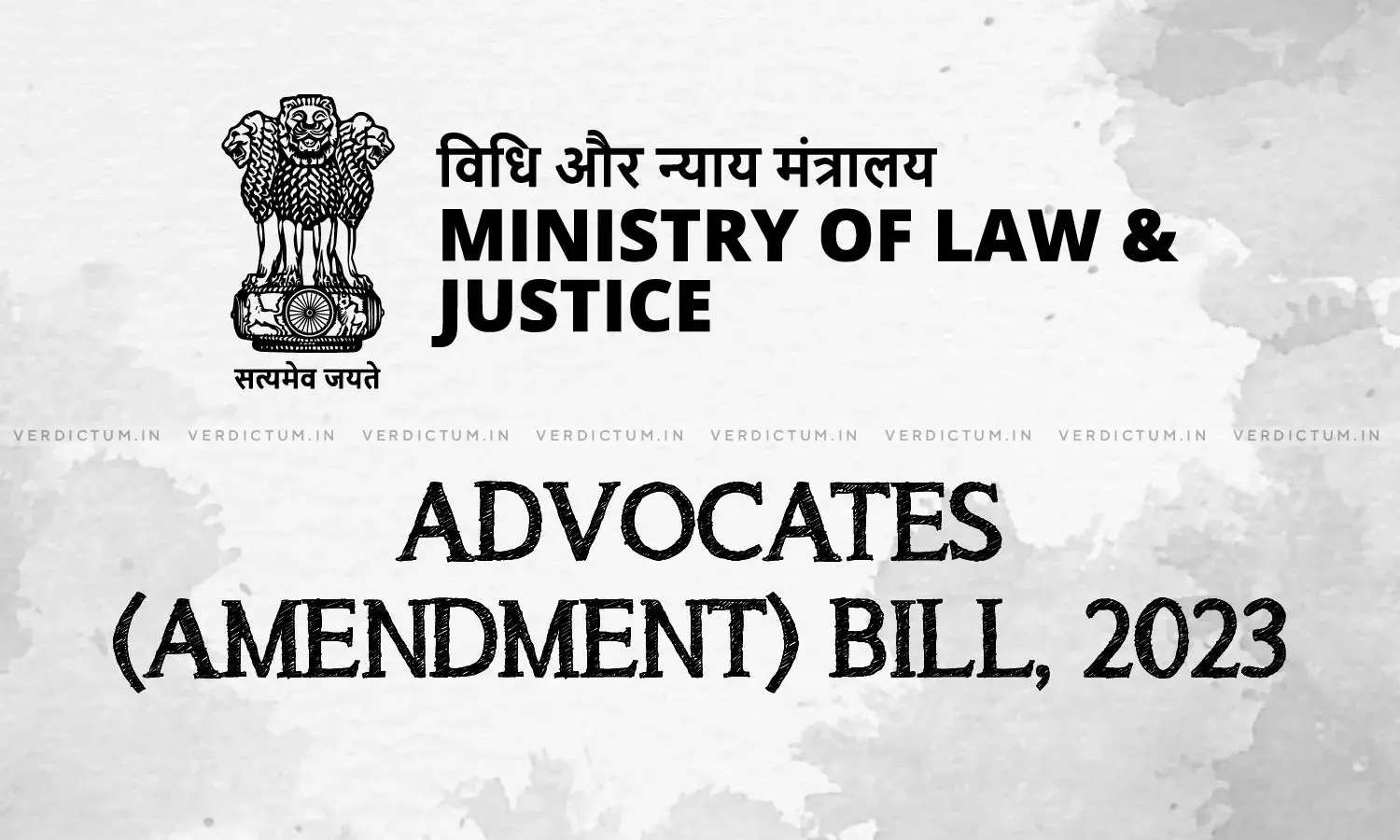Central Government Introduces Advocates (Amendment) Bill, 2023 In Parliament

The Union Law Minister Arjun Ram Meghwal has introduced the Advocates (Amendment) Bill, 2023 in Parliament in keeping with the Government’s policy of repealing all obsolete laws or pre-independence Acts which have lost their utility.
The Government in consultation with the Bar Council of India (BCI) has decided to repeal the Legal Practitioners Act, 1879 and to amend the Advocates Act, 1961 by incorporating the provisions of section 36 of the Legal Practitioners Act, 1879 in the Advocates Act, 1961 to reduce the number of superfluous enactments in the statute book which would also help to regulate the legal profession by a single Act, the Advocates Act, 1961.
“All the aspects which are dealt with in the Legal Practitioners Act, 1879 are already covered under the Advocates Act, 1961 except the matter relating to 'touts'. All sections of the Legal Practitioners Act, 1879, except sections 1, 3 and 36 have been repealed vide clause (a) of sub-section (5) of section 50 of the Advocates Act, 1961. The Law Commission of India in its Report No. 249 titled 'Obsolete Laws: Warranting Immediate Repeal (Second Interim Report)' has also recommended for repealing of the Legal Practitioners Act, 1879 after making suitable amendments to the Advocates Act, 1961”, the Bill reads.
As per the Bill, every High Court, District Judge, Sessions Judge, District Magistrate, and every Revenue-officer, not being below the rank of a Collector of a district (each as regards their or his own Court and the Courts, if any, subordinate thereto) may frame and publish lists of persons proved to their or his satisfaction, or to the satisfaction of any subordinate Court as provided in sub-section (3) by evidence of general repute or otherwise, habitually to act as touts, and may, from time to time, alter and amend such lists.
“Any authority empowered under sub-section (1) to frame and publish a list of touts may send to any Court subordinate to such authority the names of any persons alleged or suspected to be touts, and order that Court to hold an inquiry in regard to such persons; and the subordinate Court shall thereupon hold an inquiry into the conduct of such persons and, after giving each such person an opportunity of showing cause as provided in sub-section (2), shall report to the authority which has ordered the inquiry the name of each such person who has been proved to the satisfaction of the subordinate Court to be a tout; and that authority may include the name of any such person in the list of touts framed and published by that authority”, says the Bill.
The Bill also says that no person's name shall be included in any such list until he shall have had an opportunity of showing cause against such inclusion.
“The Court or Judge may, by general or special order, exclude from the precincts of the Court any person whose name is included in any such list”, the Bill reads.
As per the Bill, any person who acts as a tout whilst his name is included in any such list shall be punishable with imprisonment which may extend to three months, or with a fine which may extend to five hundred rupees, or with both.
A ‘tout’ has been defined as a person:
"(i) who procures, in consideration of any remuneration moving from any legal practitioner, the employment of the legal practitioner in any legal business; or who proposes to any legal practitioner or to any person interested in any legal business to procure, in consideration of any remuneration moving from either of them, the employment of the legal practitioner in such business; or
(ii) who for the purposes of such procurement frequents the precincts of Civil or Criminal Courts or of revenue-offices, or railway stations, landing stages, lodging places or other places of public resort.’."


